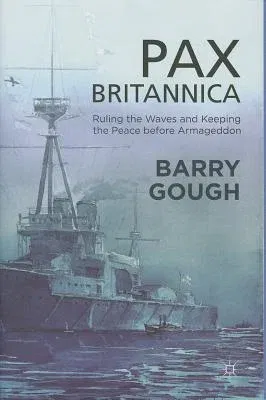When at last peace descended with the end of the Napoleonic War and the
War of 1812, British statesmen sought to enhance their new-won world
order. They had to seek security under financial restraint. They pared
back the Navy. The put their faith in bases as 'anchors of empire' on
every ocean and annex. Profit and power were twin pillars of state
thinking, to which were added freedom of navigation, the end of the
slave trade, the crusade against piracy and above all slavery. In
addition, the Navy took up surveying the waters of the world, as an
inducement to safe navigation and prosperous trade. This book by
world-expert Barry Gough examines the period of Pax Britannica, in the
century before World War I.
Following events of those 100 years, the book follows how the British
failed to maintain their global hegemony of sea power in the face of
continental challenges. How they made accommodations with Japan in order
to secure their interests against Imperial Russia, a new Pacific power.
How they faced the insurmountable threat of Imperial Germany on the
Continent of Europe. And how, apart from the Foreign Office and the
Admiralty, the British state was largely unprepared for the war that
came in 1914, and the crisis of 1914, which marks the end of Pax
Britannica.The long recessional followed, with the United States forming
the new naval power of the twentieth century. From the British to the
American naval ascendancy the fate of the world turned.

